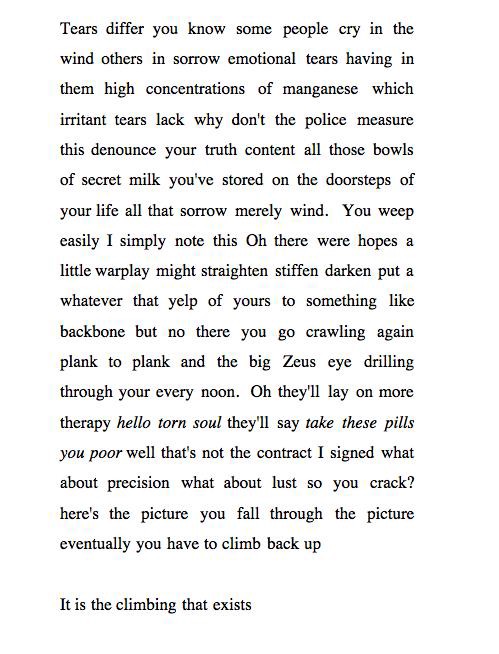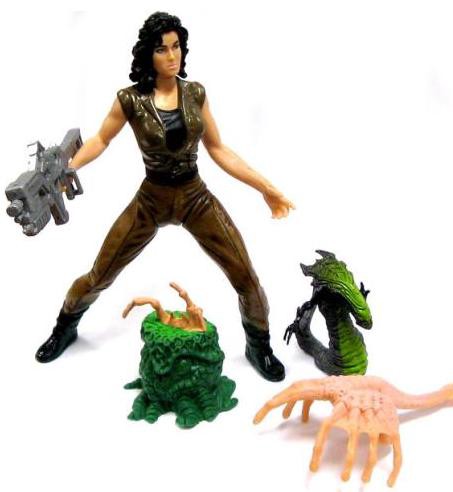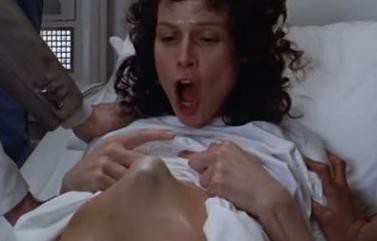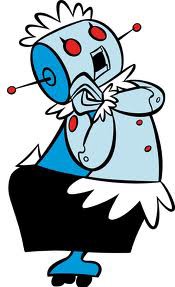Elizabeth Edwards, Obituaried

I tend to think of obituaries as having a funnel-shape. They start off wide and broad, and usually pretty, with the big announcement — whether they start with the news announcement of a death or not or not, the fact of the obituary itself serves the purpose. Then we go circling inwards, like in a comic book version of a black hole. It’s the twisting and turning where obituaries often get odd. One obituary style that’s popular is the news obit, which circles down in distinct phases: Big Broad Sketch; Details Revisited; and then Further Minutia As My Editor Has, Bizarrely, Asked For Three More Inches. That’s an obituary style that probably should be done away with, stemming as it does from the days when newspaper stories would be lopped off at different places for different editions. (The straight narrative obituary has become more common over time, at least in newspapers that still have an active obituary desk.) Still, this is a very advanced art! And a subjective one. Sometimes we’re not sure how noteworthy someone is, or why they are of note. And so here we have the strange case of the Times obituary of Elizabeth Edwards. In times past, there would (wrongly) be little mention of the popular scandal of her marriage; still, now, to have the word “infidelity” appear in the first paragraph seems nearly shocking. That her husband’s affair circles around and around as the obituary spirals down seems even odder — so much so that , in the end, this seems like a cruel and cold remembrance. Although, to be fair, perhaps that’s the most accurate take?
Interview With The Bear Hunter
“It’s like a life-long dream. The heart-pounding excitement of harvesting an animal this size is unbelievable. It’s almost like hitting the lottery to be as lucky and fortunate to hunt something this big. Knowing that you went one-on-one with this animal in their world — it’s amazing to be able to outwit him in his world.”
— New Jersey hunter Joe Piserchia explains the thrill of victory in the state’s current bear hunt, where he took down a 20-year-old bear weighing nearly 600 pounds. Part of Piserchia’s strategy to outwit the bear “in his world” involved weeks of scouting the bear and tracking the animal with motion sensor cameras.
John Lennon Died Too Young, But Not That Young, And He Was Content

“You know what I listened to for the past five years? Muzak! For the kind of chores I was doing around the house, it was perfect. I know people are going to say, ‘Oh, that’s because he’s got to be 40 and got soft.’ Well, it might be that; it’s irrelevant to me. The attitude is that when you change when you get older that there’s something wrong with that, but the world is stupid enough as it is; if the young were running it, it would be really dumb.”
— John Lennon, in an interview a month before he was killed on December 8th, 1980. (This opens a PDF file of the article in the Times
.) So if the fact that that was thirty years ago today is making you feel old, don’t worry about it. John wouldn’t have. More darkly, though, you wonder, if he had known those would be the last years of his life, would he have still listened to all that muzak? Which is why, when I’m doing chores around the house (Hey! There’s a bright side to being unemployed and turning 40 — I’m living like John Lennon!) I make sure to play some of his music. You never know. And I want to make sure I go out on the good stuff. Like this.
Anne Carson, [WIFE OF BRAIN]
Anne Carson, [WIFE OF BRAIN]
by Mark Bibbins, Editor
Today in The Poetry Section: Anne Carson.

Anne Carson’s recent books include NOX and If Not, Winter: Fragments of Sappho.
Amazingly, The Snakes A Man Smuggled On A Flight From Jakarta To Abu Dhabi Yesterday Did Not Escape...
Amazingly, The Snakes A Man Smuggled On A Flight From Jakarta To Abu Dhabi Yesterday Did Not Escape, Slither Into The Interior Of The Fuselage, And Spring Out Of Toilet To Attack Passengers’ Genitals

“There was no real-life replay of the 2006 thriller ‘Snakes on a Plane’ during the flight.”
— A man was arrested in Abu Dhabi yesterday for smuggling four snakes, two parrots and a squirrel from Indonesia to the United Arab Emirates yesterday. But, as CBS News assures us, horrible and thrilling tragedy was avoided.
Caffeine Makes You Smarter

Does caffeine make you dumber? Science, which yesterday said yes, has had a change of heart and today says no.
Researchers tapped 72 men and women, ages 18 to 25, for their caffeine/glucose experiments which, sadly, involved neither Starbucks nor Krispy Kreme donuts. After fasting overnight, subjects received doses of water, water plus caffeine, water plus glucose, or water plus caffeine and glucose (about the same amount you’d get in two soft drinks). Then they were tested on attention, manual dexterity, visuo-spatial and frontal functions and memory via a battery of tests such as remembering a list of 15 repeated words; taking a peg from a cup and quickly inserting it into a hole; sorting cards imprinted with shapes, numbers or colors; and repeating a series of numbers forward and backward…. As it turned out, the subjects’ reaction time improved in water spiked with either caffeine or glucose (glucose gave a bump to their manual dexterity, as well). But a combination of caffeine and glucose showed beneficial effects on attention and on learning and consolidation of verbal memory,; in other words, the coffee-sugar combination boosted the effects of both substances, making the test subjects’ brains more efficient.
Works for me, Science! We’ll see what you have to say about it all again tomorrow, just in case.
Photo by Selma90, from Flickr.
Internet Destroying Itself Over Julian Assange

The Internet is in full froth over the Julian Assange arrest. You pretty much don’t want to hear it from either side! For instance, a man weighs in! To him, the charges against Julian Assange “have always seemed, if not false, lame.” False or lame, either way! But then do you want to hear about how women should be judged by the company they keep — from the left? Or watch Naomi Wolf trying on sarcasm? Probably none of that either! Also Tumblr is back online, so there’s a lot of serious lady-fighting. 🙁 It’s a nightmare out there, maybe read a book until this all blows over.
Keith Richards Calms Everyone Down
We’ve seen that the least vigorous discussions tend to be about ageing rock stars.”
— Mike Thelwall, head of the Statistical Cybermetrics research group in Wolverhampton, Britain, discusses recent findings that online social networks are driven by bad behavior. “Negative emotions accelerate the number of messages sent by users, in turn generating social groups from nowhere, says Thelwall. A single post can quickly generate a community of feeling if it is provocative enough.”
Ellen Ripley Saved My Life
by Sady Doyle


I was having maybe the worst month of my life when I saw Aliens at the Landmark Sunshine, and I’m pretty sure it was the only thing that saved me.
The details are fairly mundane. I was unemployed; I’d been dumped; I’d decided to deal with all this by hooking up with a stranger, and of course that had gone in the direction of broken condoms and Plan B and hormonal anarchy, probably just because I didn’t think anything worse could happen. Right when you think you’ve hit bottom, sweet Baby Jesus comes and puts a curse on your junk. It had taken serious work, is what I’m saying, for my friend Kelly to get me to leave my Couch of Constant Sorrow and come with her to see a movie I’d already seen a couple thousand times. But thank God she did.
Because: The crowd. They cheered and hollered and did squeaky Bill Paxton impressions; they clapped and stomped; they had all seen it too, so many times. As I watched it, I started to feel again — to feel something that wasn’t panic and despair and rage, something apart from myself and better. And at the climactic moment — you know it; there’s a robot suit and Ripley and a well-timed utterance of “bitch” — I was hollering, too. Because it felt so good, just to sit there, surrounded by all that huge loud screaming love. All that love, just for a woman in the act of surviving.
At a certain point, you have to ask yourself why certain stories are so important to you. Why they become, not just entertainment, but myth: Something you use to explain yourself to yourself, or to explain the world. A thousand times, on Dr. Who, the lady Companion insists that the Doctor will save them, and every time, the people are all “BUT PERHAPS THIS TIME HE WON’T AND WE ARE SCREWED THOUGH,” and every time, the music swells and the Doctor comes and he saves as many people as he can. And you love it, every time it happens. Because that’s the story you need: There is someone out there, someone good and wise and kind, and he will always come to save you. I mean, I get it. Some people go to church for less.
But for me, it’s always been about the girls. Specifically, the Strong Woman Action Heroines: Scully and Buffy, Starbuck in the “Battlestar Galactica” reboot, Ripley and Vasquez and, hell, even Tasha Yar. I love this; I need this; I eat it up. And yet, my relationship with the Strong Woman Action Heroine is… complicated? Let’s say complicated. And let me take a minute, or several, to explain how.
RIVER TAM
“There are strains of depression running through her affective experience, stemming largely from a sense of being rejected for being different (intellectually). She harbors considerable and conscious compensatory fantasies regarding her rejectors’ come-uppance. Her reported sensitivity about injustices perpetrated against others may have to do with her identification with the underdog and with other alienated children.” — Psychological evaluation, June 17, 1991.
“Do you know what it is you’re carrying?” — Mr. Universe, Serenity
In third grade, I began writing poetry. This began to feel, very quickly, like a mistake. My little pink notebooks encrusted in glitter pen were the cause of my having to change schools, hearing from my parents that one teacher believed I was literally the reincarnation of Emily Dickinson (thus explaining my propensity to never leave the house — also, my many nonsensical e-mails), and eventually being tapped for a study on “child prodigies,” with a variety of serious adult researchers coming at me with tape recorders to demand how, HOW, I had ever thought to rhyme “butterfly” with “utter sigh.” Utter sigh, indeed.
Unsurprisingly, the year I started writing was also the year I started therapy. Which, unbeknownst to me, was also experimental, and from which data was also collected for research. Before long, I was hiding the writing, pulling the prizes down from the walls; all I wanted was to stop being weird. Or to stop being watched. Or both.
None of this is uncommon. It’s a generational experience; “gifted” children and “troubled” children both became trendy while I was growing up — sometimes with disastrous results! — and I was included in both trends. The chief result is that I recall much of my childhood as a series of doctors in strange rooms, asking me questions like: How? How did my brain work? Why was my brain the way it was? Could I demonstrate it, the brain? The other result is that I have an undying love for the Joss Whedon movie Serenity. And the whole unjustly cancelled “Firefly” series, really, but mostly: Serenity. Because of River Tam.
River, she was a gifted child. And she was therefore taken away to a special school for gifted children, where nobody was allowed to see her or visit her, for reasons that were totally normal and not at all suspicious because they were definitely not performing ominous surgical procedures on her brain. Except, oh snap! They were! And the procedures, they endowed her with an exciting new wardrobe of Crazy Pants! Her brother, Simon, rescues her from Xavier’s School for Brain-Damaged Youngsters, and they fly away in a spaceship. Because it’s the future, and there are spaceships there. Spaceships manned by a rag-tag crew of lovable misfit smugglers, even! Which is precisely the sort of spaceship upon which River Tam and her brother live.
For most of the “Firefly” series, River’s gifts are hinted at. She can read minds; she’s uncannily handy with guns. It’s not until Serenity that we learn that River’s powers also include kicking you in the back of the head whilst standing in front of you. The scene in which this is revealed is breathtaking, and ingeniously feminist: Summer Glau was a ballerina before she was an actress, and many of her lethal maneuvers are dance moves. This is the ultimate little-girl fantasy, an archetypal signifier of everything pink and fluffy and tulle, turned into something feral and deadly. For the purposes of our discussion, her story begins here.
River shares something with many Strong Woman Action Heroines: They have a disconcertingly high incidence of being locked up and used by institutions, and of being tarred with the stigma of mental illness. Ripley has the Company. Sarah Connor is put in a mental institution because she talks too much about Terminators. Buffy Summers has high school, and the Watchers’ Council; reboot Starbuck is either psychic or a robot or maybe Jesus or just endowed with a rich vein of naturally-occurring Wacky. It’s not as if this doesn’t happen to male heroes, but it’s remarkable how often these women are subjected to it. Maybe, in the end, it all comes back to Charlotte Perkins Gilman: To be a woman, and strong, is to be pathologized. Your voice is rendered unlistenable by virtue of its truth. But all of these other women spend a lot of time yelling about how you have to believe them, about how they’re! Not! Crazy! And River… well, River’s ill.
But we learn, as the movie progresses, that River has lost her ability to function because she knows too much; she’s become privy to an injustice so profound that she cannot cope with it. She is cured, eventually, not by forgetting it, or by learning how to minimize it, but by tracking down the place where the injustice was done and showing it to people, making it real to others so that she doesn’t have to live with it alone. She gets better, not by adjusting herself to a maladjusted universe, but by addressing how fucked-up things are. And by fighting it: Finally deciding to take everything that was done to her, and to use it for her own deadly purpose.
As I said, this movie matters to me on a level that is more than a little ridiculous. But if we’re going to talk about Strong Woman Action Heroines, River is a good place to start, because she expresses some basic truths. First: Strong Women are anomalous, not meant to be, dangerous and strange and suspect. Second: They are produced by a system that does not wish them well. Third: Strangeness is either a liability or a weapon. You’re only weird until you decide to own all that weirdness and use it, when you stop being someone else’s project and decide to wage your own war.
BUFFY SUMMERS
“Once again, this teacher’s perception is that Sady does not get along well with peers and she is not liked by peers… Primary reasons for these perceptions are related to her aggressive and unusual verbal behavior and her apparent willingness to draw attention to self.” — Summary of “teacher ratings,” circa 1996.
“KICK ME HARD I’M WORTH IT!” — Piece of masking tape recovered from back of sweater, preserved in family files, circa 1995.
“I’m going to look at all the pieces carefully and rationally, and I’m going to keep looking until I discover exactly how this is all your fault.” — Principal Snyder, “Buffy the Vampire Slayer.”
But what do you do in the meantime? What do you do, when everything that will eventually make you strong is, right now, every reason that you are a problem?
Thus, from the infinitely deep well of adolescent petulance, springs Buffy. She’s a Whedon creation, too; probably his most widely-known and well-beloved. And that’s probably because she comes the closest to being “universal.” For lo, Buffy the Vampire Slayer is about nothing more nor less than a mildly unpopular, mildly low-achieving, identifiably attractive and well-adjusted high school student who is always being persecuted for her innate specialness. So, in other words, you. And you, and you, and you!
And it worked. Despite the show’s high incidence of men in rubber suits, Buffy managed to be one of the more compelling and relatable characters on television. She beat the Peer Pressure Demon, the Abusive Boyfriend Demon, the Unreasonable Parental Expectations Candy of Understanding. She quipped and staked and freaked out over having to save the world, and then she saved it. She broke up with her boyfriend Angel approximately fifty times, and every time, I wept bitter tears. There were web pages and theses and books written on the character of Buffy as feminist archetype.
And then, a woman started to run the show. And the fans rioted.
In the show’s sixth season, Joss Whedon moved to other projects and handed a large portion of control over to Marti Noxon. In that season, Buffy got clinical depression, Willow abused her girlfriend and was an addict, and — most controversially — a beloved character died and Buffy’s boyfriend tried to rape her. Also, people almost literally set the Internet on fire with intense personal criticism of Marti Noxon, which lasted for years. A sample:
Could someone please get this woman some rape-crisis counseling? I’m sick and tired of being subjected to week after week of her working out her screwed-up sexual assault issues. What kind of freak is she that she would think it’s an okay message to send that Buffy is attracted to the man who tried to rape her? Why does the Slayer’s power, arguably the greatest physical power that a female in the Buffyverse can aspire to, have to be rooted in the act of rape? Why? Why must this woman bring the label of rape to everything?
Yeah! Why can’t she stop acting like a stupid sexual assault victim and focus on making our awesome feminist TV show???
As far as I know, Marti Noxon has never gone on the record to say whether she’s survived a sexual assault. She should never have to. (Fun fact: Marti Noxon was a consulting producer and sometimes writer on the second season of “Mad Men,” acclaimed for its dark and gritty look at situations such as Joan’s decision to marry her rapist.) What actually happened, in “Buffy” Season 6, was that the show stopped being about a perky audience-identification figure and started to be about a girl who faced things that could break her. Yes, it was upsetting to see the love interest attempt to rape the heroine. It was supposed to be. Because it was a scene of attempted rape. But we didn’t want that. Buffy was supposed to beat the monsters for us. All day, every day, all the time, and smiling.
This is another thing about Strong Women: We like them considerably more when they’re fictional, rather than, say, running a TV show. And we don’t like them to complain. A fetish for strong, spunky women might seem more productive than a fetish for girls who are sweet and harmless, but it can be a trap. “Strong” is often misconstrued to mean “strong enough to take anything.” “Strong” can mean “rough enough to play with the boys,” but it also has to mean “tactful enough to make the boys like you.” (That’s why it’s “strong.” And not, say, “bitch” or “irrational.”) “Strong” can mean anything people want it to mean, but a lot of the time, what it means is that if you get overwhelmed or hurt, you’ve let everybody down.
ELLEN RIPLEY
“Sady is unusual. She is a very bright child who has experienced significant peer rejection, social isolation, and emotional pain. These factors have led Sady to ‘speak in her own voice’ creatively and socially. (If everyone’s going to dislike you anyway, you may as well say what you think.)” — Letter from my mother to teachers, circa 1994.
“The third report occurred January 27, 1995. Ms. [Redacted] told Sady that she was ‘arrogant and disrespectable.’ Sady said, ‘I think you mean disrespectful.’ Ms. [Redacted] said, ‘I’ll write you up for that.’” — Appeal from my mother on disciplinary citation, February 5, 1995.
“Get away from her, you bitch.” — Ellen Ripley, Aliens.
For every report, every warning that I was going to be or had become trouble, I have a letter from my mother. She spent hours writing them: Advocating for me, explaining me, protesting injustices, all just to make my life easier. “Denied raise specifically because of the time I spent dealing with the school,” reads one private note. There’s something else behind all this Strong Woman stuff, something deeper than simple “empowerment” or wish fulfillment. It also explains why so many of these characters are written by men. That is: At some point in our lives, nearly all of us were reliant upon a woman who was stronger than us, smarter than us, bigger than us and responsible for protecting us from the world.
If you want to look at how we put Mommy issues into sci-fi, the first woman you look to is Sarah Connor. Her entire franchise and character, after all, are based not so much on who she is, but on who she’s birthed. She’s a woman who becomes strong — big, angry, visibly-intimidating-biceps strong — simply and for no other reason than to protect her child. And yet, when you look to Sarah Connor, you will inevitably be disappointed. Because she is simply not that interesting.
She gets a little moment around the grand girl power of motherhood in Terminator 2, as she’s screaming at a Skynet-inventing-type dude: “Fucking men like you built the hydrogen bomb. Men like you thought it up. You think you’re so creative. You don’t know what it’s like to really create something; to create a life; to feel it growing inside you.” Etc. And at precisely this point, her ten-year-old son yells at her to shut up. So she does. It’s disgraceful. The number of times Sarah Connor ends up deferring to her boyfriend or her child or her reprogrammed killer robot pal will make you lose all faith; even on the show named after her, she ends up sort of floating around the edges, with focus routinely stolen from her by a sexy teen robot. (Although, to be fair? The sexy teen robot is ALSO SUMMER GLAU.)

So it’s a mercy we have Ripley. David Foster Wallace may not have agreed with his date that The Terminator was one long story about the evils of abortioning — but I do! Girl, call me! — but I find it not at all unreasonable to suggest that the entire Alien franchise is about people who are dealing with unplanned pregnancies, and would very much like the possibility of a safe and legal abortion, if only to keep their rib cages from exploding.
And yet Ripley is, crucially, a mother. She finds girls in bad situations, whether they be the teeny, shrieking Newt or the politicized, rebellious robot girl (OH YES) Winona Ryder, and she devotes herself to protecting them, with all her wiry, sweaty, mecha-besuited strength. In fact, ever since Aliens, the central conflict of the series has been, not between Ripley and The Man, but between the Two Faces of Mommy: Ripley and the Alien Queen.
Because, on the one hand, you have Good Mommy, enculturated Mommy, safe Mommy: She knows your name and tucks you in at night and protects you. And on the other side, you have something entirely other, something with which you cannot reason, that knows nothing but devouring and breeding and birthing, sticky with fluid, unknowable, a nightmare: The aptly named Alien, Freud and Aristotle and Philip Roth and every dude’s Intimacy Issues, wrapped up in one egg-loaded, always-hungry, copiously gooey package. Ripley gets it wrong, as it happens; the Alien Queen is not a bitch. She’s a cunt.
But if this were it, the Alien franchise would be one long, elaborate Caitlin Flanagan article. The genius of the series has always been its willingness to make motherhood hard, as much about competence and determination as about caring, and to place the institutional presence of the Company in opposition to it. And to emphasize this good motherhood as a choice. Even David Fincher’s frankly awful Alien 3 — in which Ripley is naked a lot and gets a boyfriend for no reason and people talk about rape every five seconds and Ripley is nearly gang-raped and has to be rescued from the gang-rape by a dude, UGH — is slightly redeemed by its willingness to take the unwanted-pregnancy metaphors to a new level. “Back off! I can feel it moving!” Indeed.
The Terminator franchise — at least, the first two parts of it — is about how we fear strong women, how we’d rather have them around than be them, about how they’re meant to protect us and fight for us and then disappear so that we, not they, can be the special ones. The message seems to be that a boy’s best friend is his mother, but he needs a strong father figure such as a robot that beats people up at his command, and Mommy has to shut up when you tell her to. Allow me to rebut that message with the following: Oh, barf.
Ripley is something else. For one thing, she has daughters, which is a different story. “A woman is her mother. / That’s the main thing,” wrote Anne Sexton. That may not always be true, but for a woman who loves, say, Aliens, the point at which you stop identifying with Newt and start identifying with Ripley is an important one. We don’t all have children. We don’t all want children. But there’s a point at which you graduate beyond the story about the girl who had to reclaim her mind, beyond the girl who was special and persecuted, and you become a woman. A woman who keeps fighting, no matter how hard and costly and never-ending it is, just because she has something, someone, some girls that she’s chosen to protect.
ALIEN
“You take care of me. You’ve always taken care of me. My turn.” — River, Serenity.
“ANGELUS: So that’s it, huh? No weapons, no friends, no hope. Take away all that, and what’s left?
BUFFY: Me.” — “Buffy the Vampire Slayer.”
“I admire its purity. Its survival.” — Ash, Alien.
Joss Whedon did end up writing an Alien movie — the fourth one, which he hated. Reading through his original script, which is available online, you can see why: The characterization was snipped and neutered, the verbal wit was traded for broad physical comedy, the best action scenes were cut and recycled into something less exciting. It was very much a failure.
It was also a dry run for “Firefly”: “They’re an eclectic, fiercely individualist group, their look varied — spots of bright color showing through militarian space gear. Johner’s bright turquoise bowling shirt. Elgy’s and St Just’s floorlength leather dusters… These guys are smugglers. A long while ago, you’d have called them pirates,” reads one description. Which is exactly “Firefly,” and Serenity. And in this movie, Ripley — pathologized, eerily strong, locked up and tested and more than a little frightening — is essentially the first-draft version of River Tam.
Because she’s been made one with the monster. She’s no longer fully human, Ripley: she shares the DNA, the instincts, and the strength of the Alien Queen. The Two Faces of Mommy have become one. And despite its botched execution, that’s just beautiful.
Because it’s going to be hard. That’s the thing: It’s always going to be hard. It doesn’t end with you beating the creature, getting clear; there’s always a goddamn sequel. It ends with the monsters pouring through the door or the Hellmouth or the air ducts; it ends, sometimes, with you broke and unloved in a movie theater, clinging to the story because it’s all you have. It ends with you being disliked, still, being watched, still. Because you’re anomalous: always pathologized, always strange and frightening. Because as far as a lot of people are concerned, you’re not the heroine of the piece. You’re the monster.
So keep going. There’s no show without the monster, after all. When I look back through these papers, all these institutional perspectives on who I was, I don’t like the girl they’re talking about. I wish she could have been someone else. But I see that there was something in her that, no matter how many times it was framed as a failing — her reported sensitivity to injustices done to others; she cared. Considerable and conscious compensatory fantasies; she wanted to survive, she said she was going to go to New York and become a writer. Her aggressive and unusual verbal behavior; she spoke in her own voice — never got cured. What I see is that she survived.
There’s one version of the story that goes: There is someone out there. Someone good and wise and kind. And when you are in danger, when you need him most, he will always come to save you. It’s a good story. But there’s another story, too, that I think is important.
Because: What if no one is coming to save you? Sometimes, nobody is coming. And who didn’t come to save you, and when? What happened, on the day that you were not saved? That was the day that you saved yourself.
* * *
“The Smartest Thing She Ever Said” is a Tumblr based digital storytelling art project featuring four teams of two-one artist and one story editor-between now and the end of the year. For three weeks each, the teams were asked to interpret the phrase, “The Smartest Thing She’s Ever Said.” The current team features photographer Stephanie Gonot and writer Sarah Pachelli with support from project curator Alexis Hyde. ArtSheSaid.com and its artists are entirely supported by Ann Taylor in collaboration with Flavorpill.
Sady Doyle is the proprietor of Tiger Beatdown. This is part three in a series of three.
Previously: The Fantasy of Girl World: Lady Nerds and Utopias and Lady Robots: The Shape of Things to Come On.
Robots Are Eating Your Jobs

Who’s to blame for persistent unemployment during this jobless recovery? Robots, says Edward Leamer, director of the UCLA Anderson School of Business.
If you have nothing to offer the job market that cannot be supplied better and cheaper by Robots, Far-away Foreigners, Recent Immigrants or Microprocessors, expect it to be exceedingly difficult to find the job to which you aspire, and plan on doing low-wage service work at the end of a long and painful road of diminished aspirations, no matter what your diploma may suggest.
Dr. Leamer predicts that the only jobs left for those of us who are not made of metal will be in the fields of “repair and maintenance, personal and laundry services, religious, grant-making, civic, professional and other organizations” That all sounds pretty grim. But I’m sure they will also need people to clean the robots, right? Fix their robot arms when they fall off? Maybe we should look into that as a future career.
